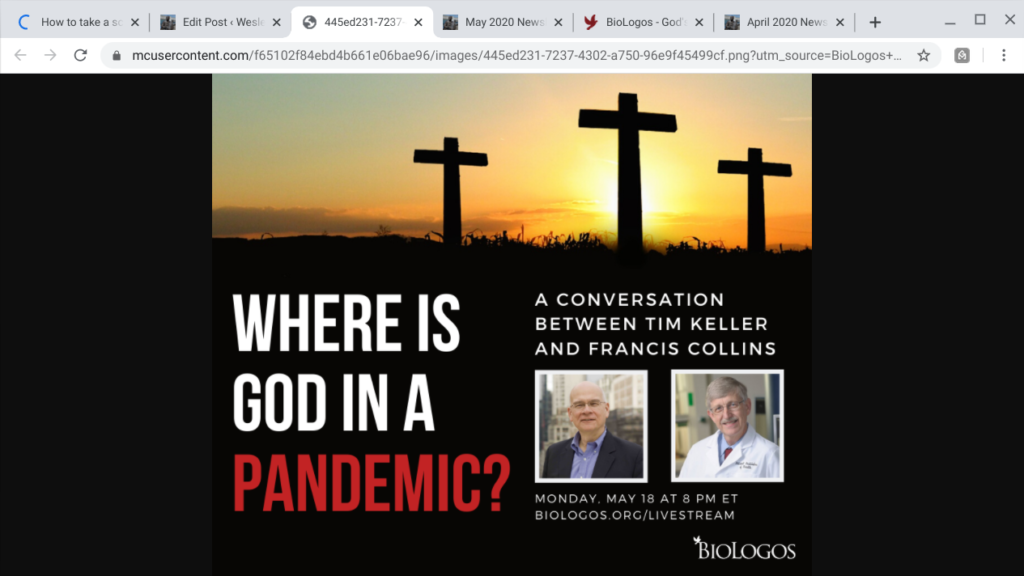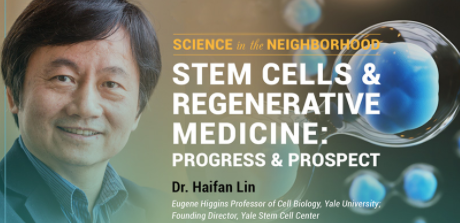Dear WesleyNexus Colleagues,
We are all familiar with the instructions from Dr. Fauci, head of the National Institiute on Infectious Diseases, on protecting ourselves from the Covid-19 pandemic. And, no doubt, most of us are diligently washing our hands early and often. But how many of us mainline Christians (including Methodists) will remember (or might even be vaguely aware) that Jesus and the disciples were upbraided by the Pharisees for failing to wash their hands? The circumstances at that time were not closly parallel to the situation that we face with the coronavirus pandemic, but there are some interesting lessons that come to us from this little pericope in which the incident is presented.

In the Gospel of Mark, the incident comes shortly after Jesus‘ visit to his hometown, where he was apparently rejected, and after the report of John the Baptist‘s death at the hands of Herod, when Jesus is on his way to Bethsaida and he encounters the large crowd on the hill, for whom he provided enough bread and dried fish to feed five thousand men (and, of course, uncounted women and children). Mark places our specific incident with the Pharisees in between the feeding of the multitudes and the encounter with the Syro-Phoenician woman at the well, but there seems to be no logic to the sequence.
The specific incident in Mark (Chapter 7:1-5) is constructed with a challenge from a group of Pharisees, perhaps scribes from Jerusalem, who make the accusation that some among Jesus‘ follows do not observe the purity laws of washing hands before eating. The scene is a classic example of verbal fencing, and Jesus deflects the accusation with a counter thrust by quoting a passage from Isaiah, saying that “this people honor me with their lips but their heart stays far away from me.“ Jesus‘ response has nothing to do with purity regulations but accuses the Pharisees of paying attention to the minutia of the tradition while ignoring the deeper precepts of God‘s commandments.
Matthew‘s account of this incident about the washing of hands (Chapter 15: 1-9) comes at a different time and place in Jesus‘ journey and the point of Jesus‘ response, quoting the same passage from Isaiah, is that we are to honor our father and mother, those who have supported us and consecrated our lives to God. Ritual washing of hands in the Hebrew tradition was a signal dividing the world into clean and unclean spheres, establishing a bond between those who might be counted inside the community of the righteous. Jesus accuses the scribes of breaking God‘s commandments by creating a human tradition permitting them to ignore the deeper aspects of God‘s Law.
The underlying lesson of all this might have something to do with the consequence of hand washing for our relationships in the larger community. The hand washing is a prelude to the much more significant aphorism that follows, as Jesus says, “Why do you wash the outside of the cup? Don‘t you understand that what comes from the inside of the cup is more important than the outside?“ Mark goes on to elaborate (verse 15) when he has Jesus say “It is not what goes into a person from the outside that defiles, but what comes out of the person that defiles.“ It challenges the everyday, the inherited notions of wholesome relationships, and erases traditional social boundaries taken to be sacrosanct.
But look: the Greek text is instructive: when Mark refers to the washing of hands in verses 2-3, he uses the Greek word nipto, the usuual word for washing, but when he mentions the washing of cups and pots in verse 7:4 the word he uses is baptizo, “to immerse.“ Whoa! Now that is unexpected. What is Mark saying here? When we immerse the cup or the pot, we are washing the inside and the outside simultaneously, so when Jesus asks about washing the outside of the cup (only), it is not exactly clear what he expects as an answer. When immersing, one can‘t wash one or the other… both the inside and outside get washed. It seems that this is one of those occasions when Jesus is “pulling the leg“ so to speak of the Pharisees, showing how silly their questions can be. Washing only the outside of the cup… only a fool would do that! It is the follow-up question that makes the point: “Don‘t you understand that he who made the inside of the cup is also the one who made the outside?“ NOW the focus is on the creator of the cup, and as a consequence, the expectation that comes to us is completely transformed. The reason we wash both inside and outside by immersion is that the creator has made them both, and in our relationships, when we offer a cup to our neighbor, we should offer a cup that has been cleaned both inside and out.
Is it not the same when we are washing our hands? Surely, we are protecting ourselves from the virus when we wash our hands, but we also are protecting our families and those around us by not spreading the virus. Diligence on this matter is both defense and offense. So look again: this little aphorism in Mark (and Matthew) is not really about washing cups, it is about paying attention to anything that is both inside and outside. “Inside“ and “outside“ is all about boundaries, and when Mark blurs the distinction with the verb baptizo, he is clearly saying that Jesus eliminates the boundaries between inner motives and outward behavior. Nothing is more clear than the human inclination toward hypocrisy, masking inner evil with outward charity.
What other boundaries might be challenged by this little aphorism? How about the boundaries between the churchy insiders and those outside, between us and them? What about drawing lines between those who are familiar, safe, normal, who look like us, and those who might appear strange, even deviant, incomprehensible or even dangerous? To challenge that boundary is to acknowledge the One who is the maker of all, and according to the subversive nature of this little aphorism, no boundaries need be sacrosanct. Do we need reminders of this? How about, the next time you are diligently washing your hands with soap and water, instead of singing “happy birthday“ twice, why not try saying the Lord‘s Prayer? All of a sudden, the nipto washing might become a baptizo, both inside and out.
Our thanks to our generous contributors. We are not asking for any contributions at this time and pray that you will keep your family’s safe and be willing to give to those who are in the most need. We will continue to share this newsletter in the coming months and encourage you to share articles and insights that will help us all weather these difficult times.
Rick, Jennifer, Maynard, and the rest of the WesleyNexus team.
**********************************************
Biologos streaming Dr. Francis Collins on May 18th

Biologos has announced its next live stream event, featuring leading evangelical thinker Tim Keller and BioLogos founder Dr. Francis Collins, who heads our country’s biomedical research as Director of the National Institutes of Health.. Tim Keller is highly respected among evangelicals, making this the perfect event to share with Christians who are skeptical about the science around the pandemic. Dr. Collins has an unparlleled reputation in the field. At a time when misinformation on COVID science is not just false but life-threatening, our churches and individual Christians need to hear this!
Many pastors in our network have asked how to stream to their respective congregations, and thankfully, there’s many ways to do this! Below are a handful of methods to ensure your congregants are reached with this much needed virtual event …
- Let them know! If your church has an email list, you can share the following link with them: biologos.org/livestream, with a reminder that this free event is Monday night at 8 p.m. ET.
- Simulcast with BioLogos: We can simulcast this event directly to your church’s Facebook Page/Group, though we have limited spaces available. If you’d like to be considered, please respond to this notice and share the church’s name, location, and Facebook link.
- Start a Facebook Watch Party: If you’re logged into Facebook and viewing our live page (link), you’ll see the broadcast appear just before 8 p.m. ET. When you click the ‘Share’ link, you’ll have the opportunity to “Start a Watch” party on your personal profile, or any groups or pages you might administer.
And of course, a recording of the event will be available soon after the event! If you have any follow up questions, feel free to reach out to: info@biologos.org.
**********************************************
Carnegie Institution live Stream on Stem Cell Research May 19

On May 19, Carnewgie Institution of Washington will present another in its bi-weekly series called Science in the Neighborhood, in which renowned scientists across the world make down-to-earth presentations and answer questions from the genral public. Virtual presentations in the Science in the Neighborhood Series provide an opportunity to meet the world’s leading scientists using the Zoom video-conferencing platform, to hear the stories behind their work, and to learn about exciting new research paths they are exploring.
On May 19, Dr. Dr. Haifan Lin will discuss the progress, current status, and future prospect of stem cell research and regenerative medicine. Stem cells are mother cells that can self-renew and give rise to any type of cell in our bodies. These special properties enable them to play a central role in generating and maintaining tissue in complex organisms. Stem cell research and regenerative medicine represent one of the most exciting frontiers of modern medicine, and has experienced tremendous growth in the past two decades—generating broad impact on science, medicine, industry, and everyday life.
Dr. Haifan Lin is the Eugene Higgins Professor of Cell Biology, and Professor of Genetics and of Obstetrics, Gynecology, and Reproductive Sciences at Yale University. He established the Yale Stem Cell Center in 2006 to advance the understanding of stem cell biology and to harness its potential to improve human health. There, he studies the molecular mechanisms that regulate stem cell self-renewal—and applies his findings to cancer research.
After spending four years as a postdoctoral researcher in Dr. Allan Spradling’s Lab at Carnegie Embryology, Dr. Lin joined the faculty of Duke University Medical School in 1994, where he rose to the rank of Full Professor. He founded and directed the Duke Stem Cell Research Program, and moved to Yale in 2006 to establish and direct the Yale Stem Cell Center, building it from just two labs to one of the largest stem cell research organizations in the world.
Dr. Lin has provided numerous services to the scientific community and beyond, including various leadership roles in the International Society for Stem Cell Research. He is a Member of National Academy of Sciences, a Member of American Academy of Arts and Sciences, and a Fellow of the American Association for the Advancement of Science, and has received many awards, including the David and Lucile Packard Fellowship for Science and Engineering (1996), the NIH Director’s Pioneer Award (2010), and the Society for the Study of Reproduction Research Award (2015).
This event is FREE. The live stream begins at 3:00 pm Eastern / 12:00 pm Pacific. Registration is required (link is external)
The Zoom client will download automatically when you join your first Zoom webinar. If you are unable to install the client on your computer, you can join through your web browser.
**********************************************
Prof. Tom Oord‘s big announcement

Last week Prof Tom Oord, who is also a long-time member of the WesleyNexus Advisory Board, announced that he is now directing a new doctoral program in open and relational theology! The doctoral program is a joint venture between the Center for Open and Relational Theology and the newly organized Northwind Theological Seminary in Florida.
Oord has been working with seminary president, Robert Duncan, and academic dean, Michael Christensen, to construct the program. Students will work primarily with Oord in the “Oxford Style” doctoral method. This doctoral program has attractive features for students, including being fully online, flexible in schedule, and much less expensive than other doctorates. Here is the info in short snippets…
– Degree: Doctorate in Theology and Ministry (DTM)
– Emphasis: Issues in Open and Relational Theology
– Mode: The degree program and its classes are fully online
– Method: The program follows the Oxford/tutor method, in which students work with Oord instead of taking group classes
– Length: The program typically takes less than 3 years of coursework and final project
– Scheduling: Courses are organized around each student’s work and family schedule, in consultation with Oord
– Cost: Because the degree is fully online, the total cost of the program is less than $15k
– Scholarships: Scholarships are offered to students with exceptional academic promise or financial need
– Diploma Granting Agency: Northwind Theological Seminary in association with Center for Open and Relational Theology offers this degree.
– Accreditation and Oversight: The State of Florida provides official educational oversight to Northwind Theological Seminary. As a startup, the seminary is working through accreditation steps with appropriate theological associations
More information can be gained with this link information A link with video and more info.
**********************************************
Lutheran Alliance for Faith, Science, and Technology May Newsletter

The Lutheran Alliance for Faith, Science, and Technology is dedicated to expanding awareness and promoting conversation about the implications of science and technology for Christian faith and life. (Prior to becoming the Alliance for Faith, Science and Technology in 2002, the effort was known as the Working Group for Faith, Science and Technology.) The newsletter can be found here: https://luthscitech.org/blog/
